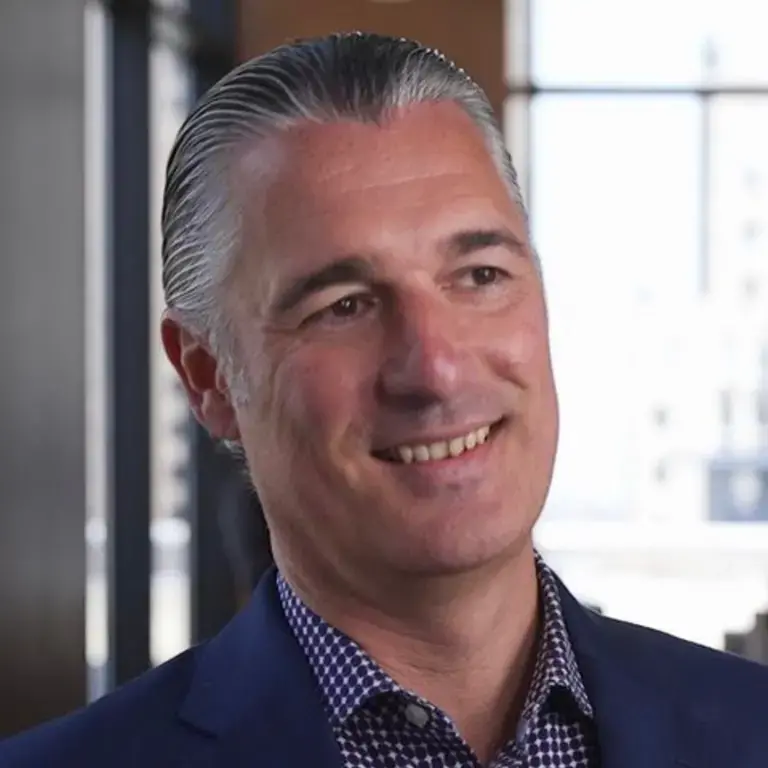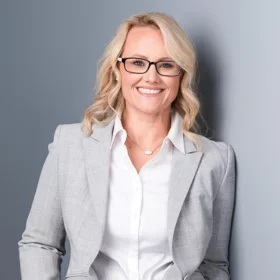Five years ago, Columbia University School of Professional Studies (SPS) launched its innovative Master of Professional Studies in Wealth Management program. Tracy Schwartz, its main “architect” and director, recently sat down with Matthias Kuhlmey, Chief Development Officer at Hightower Advisors and one of the lecturers who helped shape the program. Kuhlmey currently teaches the innovative Special Topics in Wealth Management: Disruptive Trends course. Over the years, he has identified and called for major shifts that are now industry-defining realities.
Tracy: Matthias, years ago, when we designed the program, you highlighted that the generational wealth transfer would be the catalyst for significant changes in the wealth management industry that hardly anyone was prepared for. Now we are beginning to see an unprecedented shift, with younger clients demanding digital-first and hybrid solutions—or “bionic advice,” as you refer to it. What do you think continues to drive this transformation?
Matthias: First, it was inevitable. The financial advice industry was built around traditional engagement models that catered to our parents and grandparents. However, an emerging new generation of wealth, in particular millennials and Gen Z, are “digital natives.” They expect access to solutions and a community “at their fingertips,” along with transparency around choice. Second, the unprecedented wealth transfer we are witnessing will only accelerate this shift. It should be alarming that traditional advisors are losing out to Retail Direct solutions—by definition, an advice channel that operates without traditional advisors. According to Cerulli, assets in this space have grown to nearly $14 trillion, compared with the $31 trillion held by actual advisors.
Tracy: You’ve spoken about the shift from a traditionally vertically integrated to a modular financial system, where wealth management services become more flexible and customizable. Now, with the rise of tokenization, fractional ownership, and open banking, do you believe we have reached a tipping point?
Matthias: We are definitely approaching one. The old business model of vertically integrated, closed financial services firms has given way to more adaptable, tech-driven ecosystems that are open and modular. And “big data” will do the rest. Clients are expecting to be understood as individuals, as a “category of one,” and not squeezed into segmented service models that firms are offering to optimize their own scale. Tokenization, for example, allows clients to own fractions of high-value assets, whether it’s real estate, fine art, or financial assets. This evolution will democratize wealth by lowering many “barriers of entry” with access to all sorts of opportunities. Firms that fail to adapt to this modular approach will find themselves increasingly irrelevant.
Tracy: The role of blockchain and digital assets in financial services was something you predicted would be transformational. Today, we see major institutions embracing blockchain for not only transforming processes but value creation. Do you believe this shift will continue?
Matthias: Without a doubt. Blockchain technology has been revolutionizing our understanding of trust. Not long ago, we informed “buying” decisions strictly with a focus on company brands and brand loyalty in mind. In many ways, we are now consuming on the basis of “distributed trust.” We have accepted that our data and information “sit” somewhere in the cloud, shared by several providers, including in the creation of value. Initially, many dismissed digital assets as a passing trend, but we are now seeing central banks, reputable asset managers, and large institutions integrating blockchain into their day-to-day. The key is that blockchain doesn’t just provide a basis for digital assets, it redefines how financial assets are being recognized, “traded,” and transferred.
Tracy: You’ve also addressed the industry’s succession crisis but very differently from other observers; you keep referring to it as a “relevance crisis.” One issue is that the average financial advisor is nearing retirement, and younger professionals aren’t prepared for the future needs of the business. Has the industry done enough to prepare for this?
Matthias: Not yet, and that’s a real concern. As an industry, we are oversimplifying the succession topic by stating the need of “closing an age gap” between principal generations. It is far more complex. Succession is one of the few organic points on the timeline when a business can renew its value proposition. But more often, we are training the second generation for what the business “is” instead of what needs to change to stay competitive in the future. This will become especially relevant with a younger generation of wealth demanding different things. The often-stated advisor shortfall, in this respect, I view as less of a concern. It is not a matter of numbers but what type of advisor and talent we will need to compete in the future. Their profiles will change.
Tracy: You view the focus on ESG as not a leading differentiator any longer but remain steadfast that values-based decision-making by clients will continue to reshape the wealth management industry. Do you think this is a lasting change or just another trend?
Matthias: It’s absolutely a lasting change. Clients today, especially younger generations, aren’t just looking at financial returns; they want their money, and affiliation with a brand, to reflect their values. Their guidance is “Tell me what you stand for, and I will tell you if I can be with you.” This is a significant change in consumer dynamics and, frankly, power. Regrettably, many advisors in our industry remain convinced that younger generations of wealth will just “come around,” but the future is more complex. Transparency and ethical considerations are now at the core of decision-making. Further, the quality of financial advice will likely become benchmarked and subject to peer evaluations. A once private and overly discreet industry will have to “break open.”
Tracy: Looking ahead, what do you see as the next major disruption in wealth management?
Matthias: The obvious answer is Artificial Intelligence, and yet I am holding back on this “blanket statement.” Advisors will not lose clients to AI but to firms that use AI to optimize commoditized processes. Regrettably, the way most of us think about commoditization is a logical fallacy; it does not mean we can pay less attention to certain solutions but that we must solve for them very, very well, as there is practically no differentiation and pricing power left. With this in mind, the future of wealth is all about our human qualities and helping clients to meet their aspirations. Combining this idea with current advancements in data infrastructure, technology will not be a lasting differentiator but a great equalizer. Bionic advice models, the curated and managed “intersection between human and machine,” will likely become the next big trend and disruptor.
About the Program
A 16-month online program with asynchronous instruction, specially designed to accommodate working professionals, Columbia University’s Master of Professional Studies in Wealth Management program is taught by distinguished faculty with deep applied experience in their respective fields. Additionally, it is a CFP Board Registered Program designed to help students meet the educational requirement for CFP® certification.
The fall 2025 application deadline for the M.P.S. in Wealth Management program is June 1. Learn more here.




